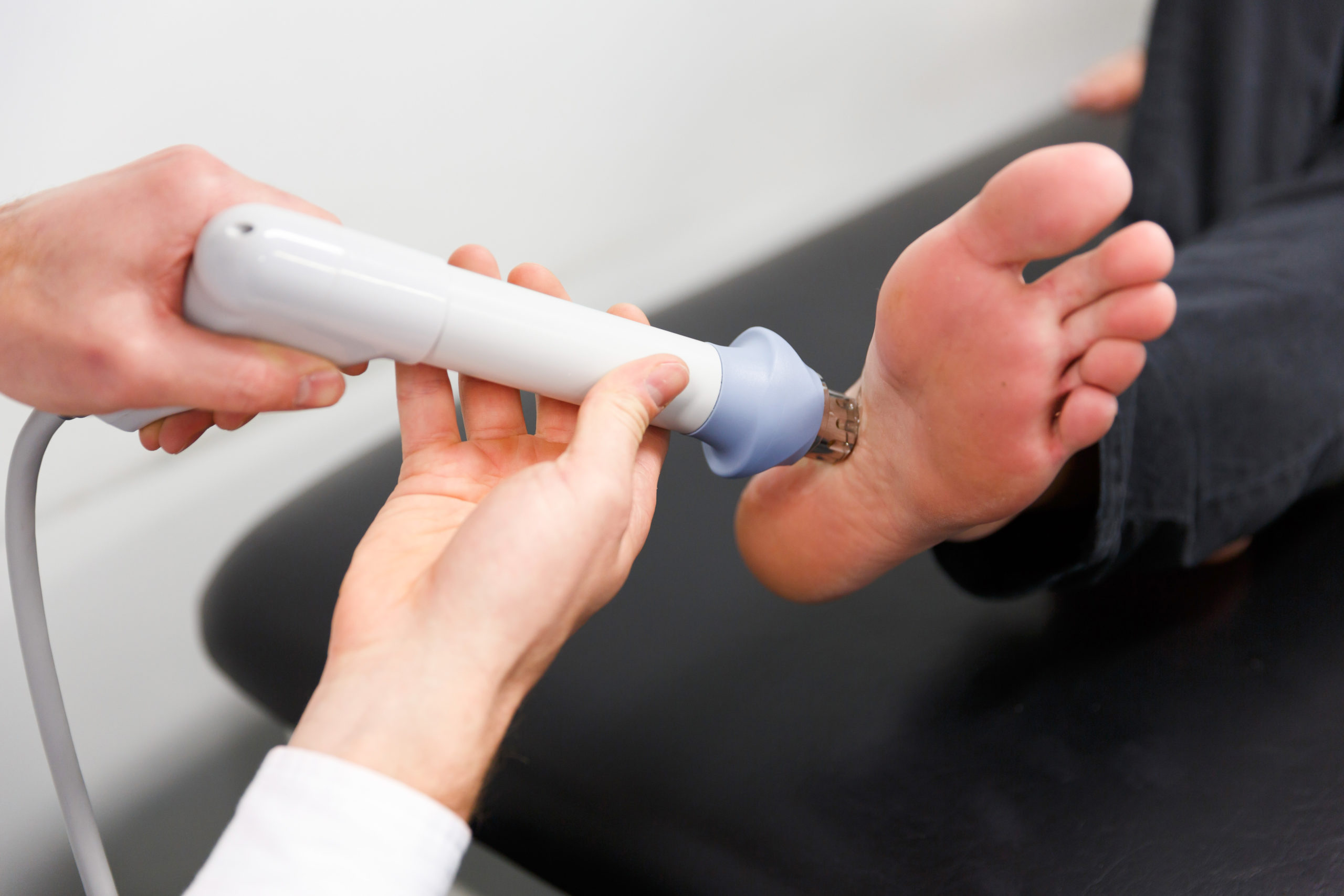
Shock wave therapy, also referred to as Extracorporeal Shock Wave Therapy (ESWT), is a promising treatment for tendon injury. There is research evidence supporting the use of shock wave therapy in treating common tendon injuries, such as Achilles tendinopathy, plantar fasciitis and shoulder calcific tendinopathy.
How does ESWT work?
It is based on lithotripsy that has been used to treat kidney stones for many years. The treatment involves delivering high frequency shock-waves to the injured tendon. These shock-waves are delivered non-invasively through the skin, and treatment stimulates healing in chronic tendon injuries that have failed to heal spontaneously and have not responded to other treatments. About 60-80% of patients have a significant improvement in their tendon pain after shock-wave therapy.
What does treatment with ESWT involve?
A standard course of shock wave therapy involves three to four weekly treatments. You will feel some discomfort during the treatment, but this will subside quickly afterward. You should avoid strenuous activity for 2 days post-treatment
Safety, side-effects, contraindications
There are several studies using ESWT published in the medical literature and they indicate that ESWT is a safe treatment option. Occasionally people experience a bruised feeling, discomfort that may last for a day after treatment or skin irritation. ESWT is contraindicated if you have a clotting disorder, are on anticoagulants, are pregnant, or have inflammation in the treatment area.
Do I need a referral?
No. You do not need a referral but you will need an initial assessment with our tendon specialist physiotherapist to see if shock wave therapy is suitable for you given your history, symptoms, previous treatment and ultrasound imaging.
